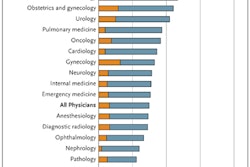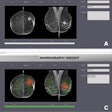When radiologic technologist David Kwiatkowski was found unconscious on the bathroom floor of an Arizona hospital in 2010, allegedly with a syringe of fentanyl at his side, he lost his job and his state licensure. So how was Kwiatkowski able to go on to work at hospitals in other states, potentially exposing thousands of patients to hepatitis C?
That's the question that federal and state investigators are asking in the wake of the Kwiatkowski case, which spans eight states and multiple regulatory and accreditation agencies. The story has exposed a patchwork of regulation regarding the accreditation and licensure of allied health workers, a system that's especially unsuited to dealing with the highly mobile workforce that has evolved throughout much of healthcare.
The situation is severe enough that personnel experts are proposing more stringent requirements for testing healthcare workers prior to employment, including the creation of a national database for background checks. But such a database could take years to set up, and in any event might not address an employment environment in which hospitals are reluctant to report on workers who are terminated for ethical lapses that could portend underlying problems, but that aren't severe enough to warrant revocation of a license.
Mysterious hep C infections
The Kwiatkowksi case came to light earlier this year at Exeter Hospital, a small, 100-bed community hospital in New Hampshire, which began experiencing a mysterious outbreak of hepatitis C infections among patients in May. Some 30 patients tested positive for the same strain of the virus.
Investigators eventually traced the outbreak to Kwiatkowski, who had begun working at Exeter Hospital in April 2011 as a traveling technologist in the facility's cardiac catheterization lab; he was converted to full-time employment that October. He was arrested on July 19 by federal investigators at a hotel room in Massachusetts.
Kwiatkowski has been charged with stealing fentanyl syringes intended for patient sedation in the cardiac cath lab and diverting them for his own use. After using the syringes, he allegedly replaced the fentanyl with another liquid, and the contaminated syringes were subsequently used in patients. Exeter Hospital said that while medication vials are kept in a locked machine to which cardiovascular technologists such as Kwiatkowski do not have access, technologists do have access to the angiography lab area itself to participate in, prepare, or observe procedures.
According to an affidavit filed in the case, Kwiatkowski was observed leaving the cardiac cath lab during procedures, sweating profusely, and attending procedures on his days off, as well as engaging in other suspicious behavior. One witness claimed that he appeared to be "on something," while another witness claimed to have seen "track marks" on his arms, according to the affidavit.
Kwiatkowski has been charged with multiple counts of patient endangerment, and he faces up to 20 years in prison for allegedly tampering with a consumer product and four years for allegedly obtaining a controlled substance by fraud. Each offense is also punishable by a fine of $250,000.
Meanwhile, Exeter Hospital and other hospitals in as many as eight states where Kwiatkowski worked in the past have launched hepatitis C testing programs for anyone who may have received procedures in areas where he worked. But could the infections have been prevented if Kwiatkowski's behavior had been detected earlier? And are any steps being taken to prevent such outbreaks from happening again?
The questions are especially relevant because the Kwiatkowski case is the second time in two years that a radiologic technologist has been accused of infecting patients with hepatitis C as a result of drug diversion (see sidebar, next page).

















